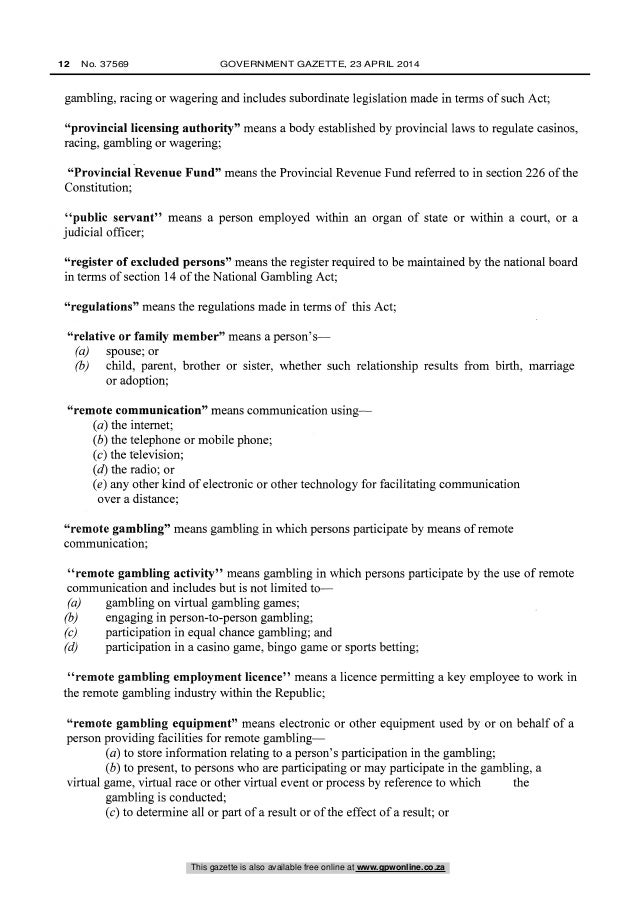National Gambling Amendment Bill South Africa
National Gambling Amendment Bill; NRCS 2017/18 Annual Report & Quarter 1 performance. Content available under a Creative Commons Attribution 3.0 South Africa. REPUBLIC OF SOUTH AFRICA NATIONAL GAMBLING AMENDMENT BILL (As presented by the Portfolio Committee on Trade and Industry (National Assembly)) (The English text is the offıcial text of the Bill.).
National Gambling Amendment Bill South Africa South Africa
Nkoatse Mashamaite provided an exclusive update on the country’s National Gambling Amendment Bill
The Department of Trade, Industry, and competitions [DTIC] in South Africa issued an exclusive update regarding its National Gambling Amendment Bill. The director of the department, Nkoatse Mashamaite, focused on how the largest regulated gambling market has evolved since 1994. That was the year when the country became democratic.
Before then, the only permitted bet was a horse racing report from 1995 on whether all types of betting should be allowed, indicating that there should be regulations to boost the economy. The information has remained unchanged since.
The director emphasized a need to protect society from the adverse effects of gambling, and gambling opportunities get limited, devoid of overspreading them. He also insisted that there should be monitoring and control of the industry and enforce norms and standards to ensure there is political coordination countrywide.
The latest system that will apply across the nine provinces of South Africa ensures that each region retains licensing and compliance monitoring rights. Casinos are the most valuable in the gambling industry of South Africa with the Betway casino among the largest. They are evenly distributed across the provinces. Among the other most useful are the 50 000 limited pay-out machines, sports betting, among others.
National Gambling Amendment Bill South Africa Constitution
The director still insisted that online casinos are not yet permitted per the county’s policy. It has not yet been legislated despite allowing interactive gambling in the 2008 bill. The act has not, however, been made operational to date.
Mashamaite informed the audience on the status of the bill getting amended in parliament. The bill proposes the National Gambling Board CEO, who will be answerable to the trade and industry minister only.
The bill also aims to curb unlawful gambling winnings. According to the director, monies won unlawfully and surrendered to the new body National Gambling Regulator formed to replace the National Gambling Board. The act is focusing on the streamlining of the body’s decision-making. He said that there is no need for not making important decisions in the absence of majorities.
Electronic monitoring systems will now be extended to other modes of gambling to improve efficiency. The bill is awaiting approval from the National Council of Provinces. As of not, Betway sports betting remains lawful and regulated.
Other speakers were keen to indicate that African Gambling Gross has been growing tremendously. The stats are necessary for those investors, suppliers, and operators who intend to be part of the industry evolution.


It included the fundamental socioeconomic and demographic trends, namely, the population growth with most of the Africans being youths and the increase in the middle class due to the disposable income increase.
In a bid to grow revenue substantially, the market needs to get regulated stably and sensibly. The two main drivers of the sports betting gross were identified as sports betting and online betting. Betway represents a substantial share in terms of customer base not only in South Africa but also in the rest of the continent. The betting gross is estimated to keep growing over the coming years.
Operators are likely to be at loggerheads with the government occasionally, but there should always be an amicable solution. The betting industry has been providing jobs for many across the world. The sector requires proper regulations to curb the adverse effects it can have on society and ensure it is profitable to the community.